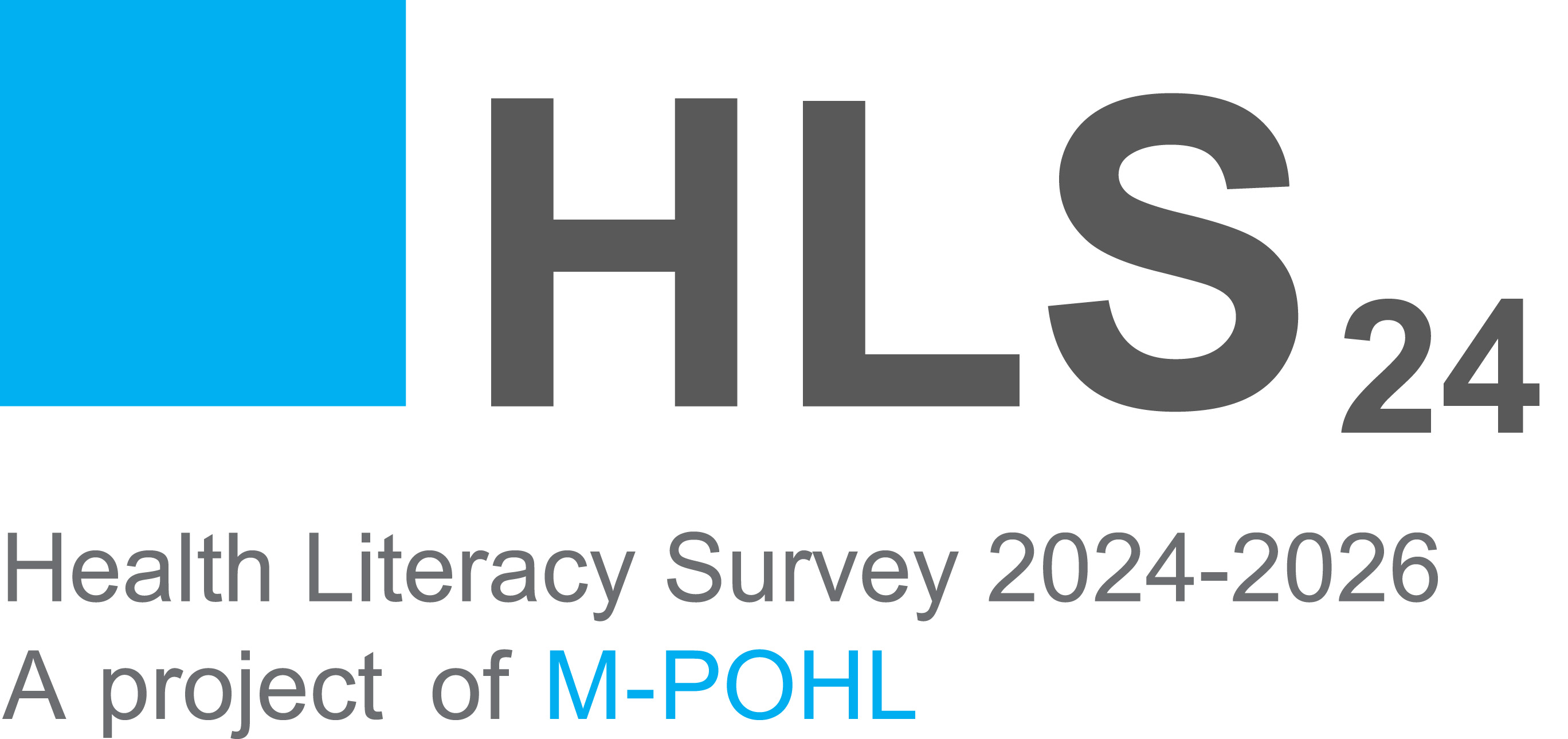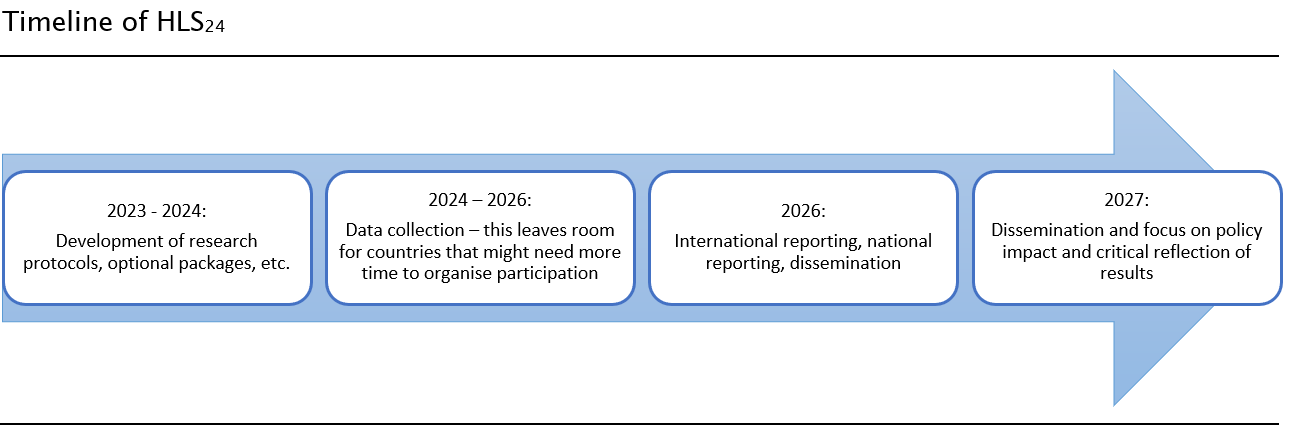About the HLS24
 M-POHL aims to provide empirical data for monitoring health literacy in the WHO European Region, and this is best done by institutionalizing regular, high quality internationally comparative population health literacy surveys. Based on results from HLS19, it was recommended that the health literacy of the adult resident population should be measured periodically in as many countries as possible. Therefore, a next health literacy population survey, the Health Literacy Survey 2024-2026 (HLS24), was initiated with an overall project timeline from 2023 to 2027.
M-POHL aims to provide empirical data for monitoring health literacy in the WHO European Region, and this is best done by institutionalizing regular, high quality internationally comparative population health literacy surveys. Based on results from HLS19, it was recommended that the health literacy of the adult resident population should be measured periodically in as many countries as possible. Therefore, a next health literacy population survey, the Health Literacy Survey 2024-2026 (HLS24), was initiated with an overall project timeline from 2023 to 2027.
HLS24 will allow countries that have already participated in HLS19 to comparatively monitor their population health literacy, and new countries to initiate measuring adult population health literacy in their county.
All participating countries will have the opportunity to contribute to the improvement of the HLS19 measures on the specific health literacies - navigational, communicative, digital, and vaccination health literacy - and to the development of new specific instruments on mental and distributive health literacy and relevant covariates, i.e., determinants or consequences or mediators or moderators of health literacy, for the next round of international measurement.
Participating countries will be support in translating instruments from generic English versions into their national languages, in pretesting these instruments and. in data cleaning. The ICC handles data processing for all countries and analyzes the country data to produce the HLS24 International Report with co-authors from the participating countries. The ICC also supports follow-up articles in peer-reviewed journals. Based on HLS24 data recommendations for policy, practice and research will be provided.
Participants
Currently (in 2026) 22 M-POHL member countries are part of the HLS24 consortium: Austria, Belgium, Bulgaria, Czech Republic, Estonia, France, Germany, Hungary, Iceland, Ireland, Israel, Italy,
Kazakhstan, Moldova, Netherlands, Norway, Portugal, Serbia, Slovakia, Slovenia, Switzerland, and Ukraine.
Coordination
The HLS24 is coordinated by an International Coordination Centre (ICC) located at the Austrian National Public Health Institute (Gesundheit Österreich GmbH).
Core team of the International Coordination Centre (ICC) and their roles/responsibilities:
- Robert Griebler - Scientific Coordinator
- Christa Straßmayr - Project Coordination and Research
- Thomas Link - Statistics and Research
- Denise Schütze - Statistics and Research
Design & methods
The HLS24 will apply a multi-center cross-sectional study design. The study population is defined as all permanent residents aged 18 and above living in private households in the participating countries. National sample sizes are expected to be at least 1,000 respondents. The participating countries will use a multi-stage random sampling procedure or quota sampling. Data will be collected primarily in face-to-face or web-based interviews, or a combination of these. The timeframe for data collection will be between July 2024 and June 2026.
The study design includes measuring general health literacy as well as specific types of health literacies should be measured. Besides the four specific health literacies measured in HLS19 (navigational, communicative, digital, and vaccination health literacy), optional packages on mental health literacy and distributed health literacy will be provided. Data will be jointly analysed, and results will be published in national and international reports.

